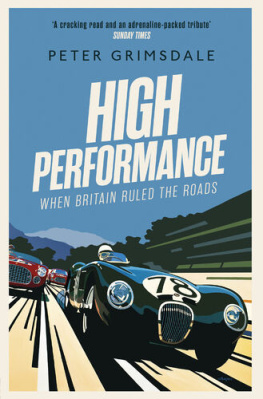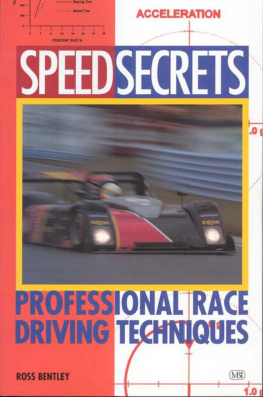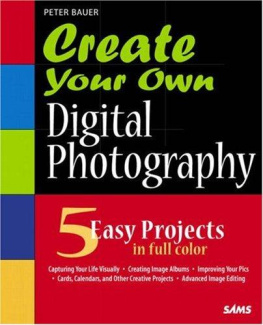Peter J. Bentley - Digital Biology
Here you can read online Peter J. Bentley - Digital Biology full text of the book (entire story) in english for free. Download pdf and epub, get meaning, cover and reviews about this ebook. year: 2011, genre: Children. Description of the work, (preface) as well as reviews are available. Best literature library LitArk.com created for fans of good reading and offers a wide selection of genres:
Romance novel
Science fiction
Adventure
Detective
Science
History
Home and family
Prose
Art
Politics
Computer
Non-fiction
Religion
Business
Children
Humor
Choose a favorite category and find really read worthwhile books. Enjoy immersion in the world of imagination, feel the emotions of the characters or learn something new for yourself, make an fascinating discovery.
- Book:Digital Biology
- Author:
- Genre:
- Year:2011
- Rating:5 / 5
- Favourites:Add to favourites
- Your mark:
- 100
- 1
- 2
- 3
- 4
- 5
Digital Biology: summary, description and annotation
We offer to read an annotation, description, summary or preface (depends on what the author of the book "Digital Biology" wrote himself). If you haven't found the necessary information about the book — write in the comments, we will try to find it.
Digital Biology — read online for free the complete book (whole text) full work
Below is the text of the book, divided by pages. System saving the place of the last page read, allows you to conveniently read the book "Digital Biology" online for free, without having to search again every time where you left off. Put a bookmark, and you can go to the page where you finished reading at any time.
Font size:
Interval:
Bookmark:


Copyright 2011 by Peter J. Bentley
Digital Biology eBook Edition ISBN 9781105394935.
All rights reserved, including the right to reproduce this book or portions thereof in any form whatsoever.
Also published by:
Hodder Headline Press, London (UK Hardback); ISBN 074727021X
Simon and Schuster (USA Hardback); ISBN 0743204476
Simon and Schuster (USA Paperback); ISBN 9781416577140
Gimm-Young, Seoul (Korean Translation); ISBN 8934912812
Review Pub. (UK paperback); ISBN 0747266549
Berkeley Pub. (Brazilian Translation); ISBN 8572516344
How nature is transforming our Technology
Peter J Bentley
For Mum.
Margery Bentley 1941-2009
I first thought of writing a popular science book in 1999. A BBC radio producer was enthusiastic about my research and suggested I write about it for the general public. I had already had some success in my research field of evolutionary computation, and although still a young postdoc researcher with one academic book to my name, I decided this was a challenge I couldnt resist.
But how to start? Digital Biology began as just a name, borne out of a brain-storming session at a pizza restaurant with my PhD students at the time, Jungwon and Sanj. I was imagining a book where I could tell the story of biology and bio-inspired computing research together. Somehow I wanted to inspire the reader, to show them our motivations, our aspirations and our imaginations. So I decided to use narrative and science writing combined. I would tell stories from interesting and unusual perspectives to bring these ideas to life and then explain the research in everyday language.
I wrote drafts of two chapters (which are now chapters two and three of the book) and through my publishing contacts I soon had trade publishers fighting over the rights to publish. I suddenly realised I was out of my depth. Were these extraordinary offers good? Should I expect more? I went to see our local popular science author at UCL, geneticist Steve Jones. He immediately said, you need an agent - go see mine. So to my surprise I ended up being represented by one of the best literary agencies in London, and they secured some impressive deals with world-class publishers Simon and Schuster and Hodder Headline for this book.
But I had a dilemma. My research contract at UCL was coming to an end and the Head of Department wanted me to start teaching a new course on Evolutionary Computation. By coincidence I also needed to move house at the same time. I was faced with a scary choice - take a secure lecturing job at UCL, but perhaps give up the dream of writing the book, or turn down the job and take the dangerous route of becoming a writer. My choice was to change the direction of my life from then on. I chose to be a writer.
The rest of Digital Biology was written the following summer, in 2000. The royalties enabled me to become a self-employed researcher at UCL, building my own research group further and giving me complete freedom to pursue all the interesting ideas I describe in the book, without the burden of teaching and administration. Thankfully the reception to the book was very good, and I continued my writing, producing several more academic books, and a string of further popular science books ( The Book of Numbers , The Undercover Scientist , and most recently Digitized ) on more general topics. I continued my research and also became a visiting researcher at different institutions around the world, a consultant (and even the author of a number one best selling iphone app). But my heart still lies with my first popular science book. It was this book that changed my life, and this book that generated such enthusiasm from my readers.
Today, it is eleven years since I wrote Digital Biology. I have a broader perspective and more experience in research and writing. Reading this book again, it is fascinating to see how my thoughts and style has evolved over the years, and indeed how the different fields of research have progressed. Many of the ideas I outline here have blossomed into major new research efforts. And although I might not use quite the same words today as I did then, my message and my enthusiasm remains undiminished.
In this new eBook edition of Digital Biology , I have updated some text and added new footnotes to explain how the field has moved on. Whether this is the first time youve read the book, or whether youre returning to see what has changed, I hope you enjoy visiting the strange universes that exist within the minds of scientists (or at least the mind of this one). It has certainly been my pleasure to return to this book again.
Imagine a future world where computers can create universes - digital environments made from binary ones and zeros. Imagine that within these universes there exist biological forms that reproduce, grow and think. Imagine plant-like forms, ant colonies, immune systems and brains, all adapting, evolving and getting better at solving problems. Imagine if our computers became greenhouses for a new kind of nature. Just think what digital biology could do for us. Perhaps it could evolve new designs for us, think up ways to detect fraud using digital neurons, or solve scheduling problems with ants. Perhaps it could detect hackers with immune systems or create music from the patterns of growth of digital seashells. Perhaps it would allow our computers to become creative and inventive.
Now stop imagining.
We are all becoming blas about computers. The whirring, chittering box sitting on (or underneath) your table is probably no longer a frightening device for you. More likely, you regard it as a necessary evil when working it becomes part of the furniture and when not working it becomes something to hurl abuse at. You cannot even escape it when leaving your office everywhere you go, you hear people talking in a new language of e-mails, dot com domain names and template files. What existed only in the laboratories of computer scientists ten years ago now forms part of everyday conversation for the least computer-literate of us. Computers and computer software are everywhere, and yet, except for a few of the nerdy types, they are largely ignored or taken for granted by us. Somehow this seems unfair. When some of the most exciting and inspiring new developments of our technology are happening inside the minds of these benign chittering boxes, to disregard them is to ignore something wonderful. So I shall not ignore them. I shall do the opposite: I will focus on them. By doing so, I will change the way you think about computers.
Follow me, if you will, into a different universe into the digital universe of our computers. I would like to show you the marvels that inhabit this strange new environment. Youll find them familiar, but different. Alike, but diverse. And dont worry, the digital entities I want you to meet are not incomprehensible collections of numbers or equations. They are just the same as you and the natural world that surrounds you. They may live and die within digital domains, but they are every bit as biological as you. Together, they comprise digital biology .
To make this journey we must abandon our physical forms and don digital bodies, for we cannot exist in a digital universe as we are. Ready? Then here we go.
The journey from our universe to the digital universe is instantaneous. We open our digital eyes and see trees. But these trees are not static. As we watch, we see them grow - from a small seedling to a vast, towering pine. The immense and beautiful complexity of the branches develop before our eyes, leaves form in symmetrical patterns, stems thicken into trunks. A forest grows up around us, the trees all trying to outreach their neighbours in the quest for the sunlight. At our feet are other plants - ivy sending out tendrils to the trees and then swarming up them like leafy snakes. Ferns unfurl themselves and we see their intricate fractal-like forms spread wide to catch the low level of light at the forest floor. We move through the forest and spot some seashells on the ground. Again, they grow before our eyes, the spirals and patterns emerging like ripples on water. When you pick up one of the shells and put it to your ear, instead of hearing the sea, you hear the pattern of the growing shell, transformed into music. You see, these are not ordinary plants and shells. They are not made from atoms and molecules, and they are not growing in our universe. They are digital plants, made from the flow of electrons within the digital universe of a computer.
Next pageFont size:
Interval:
Bookmark:
Similar books «Digital Biology»
Look at similar books to Digital Biology. We have selected literature similar in name and meaning in the hope of providing readers with more options to find new, interesting, not yet read works.
Discussion, reviews of the book Digital Biology and just readers' own opinions. Leave your comments, write what you think about the work, its meaning or the main characters. Specify what exactly you liked and what you didn't like, and why you think so.

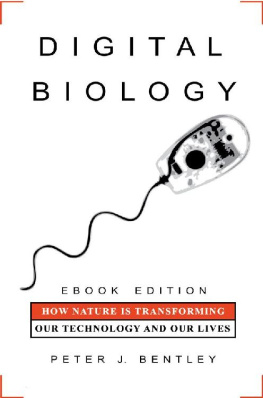

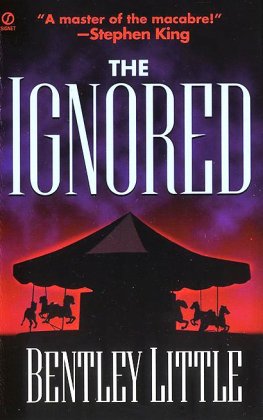
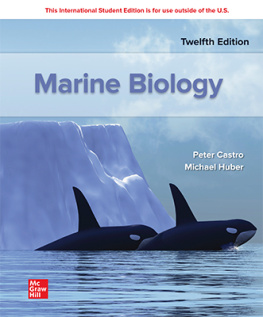
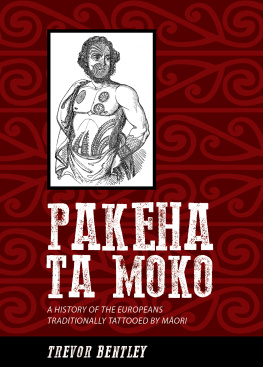

![[美]乔恩·本特利(Jon Bentley) 著 - 编程珠玑(第2版·修订版)](/uploads/posts/book/275588/thumbs/jon-bentley.jpg)
